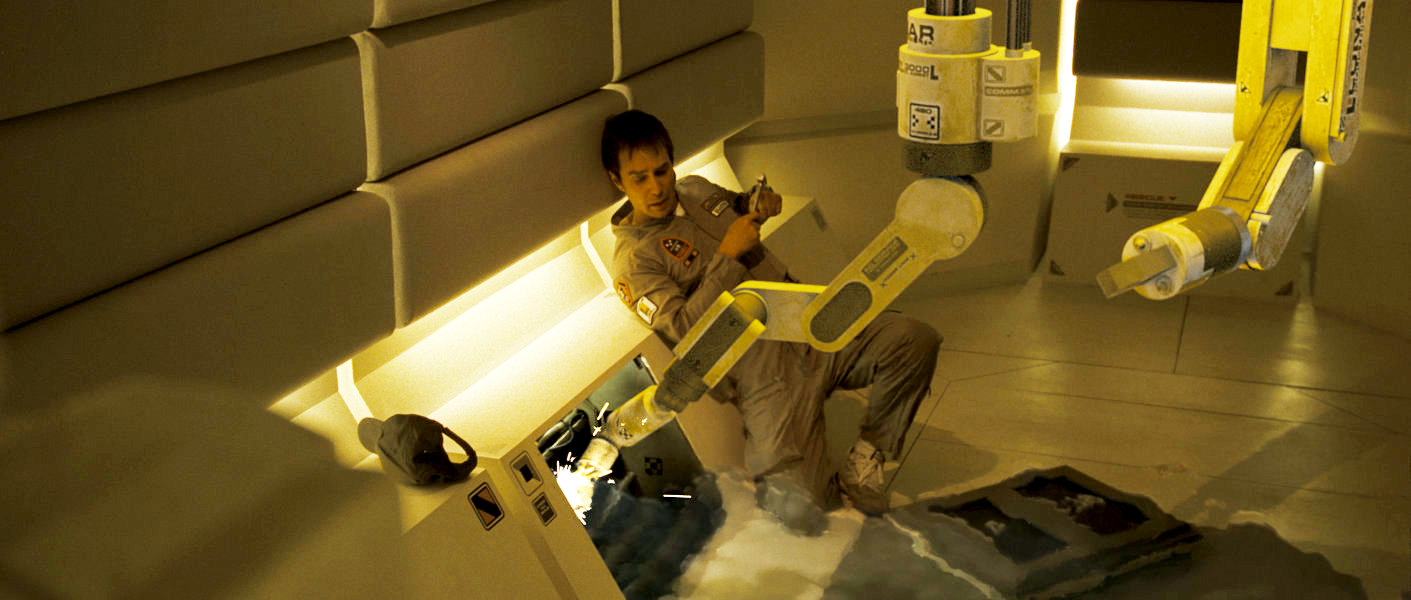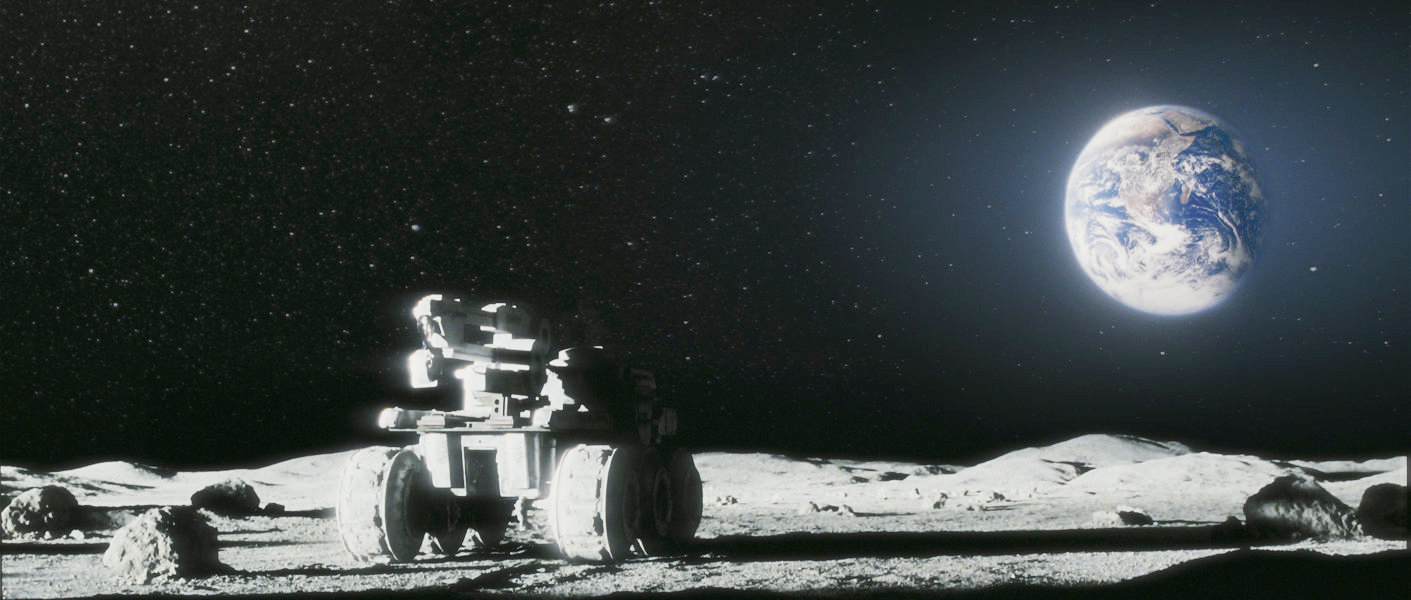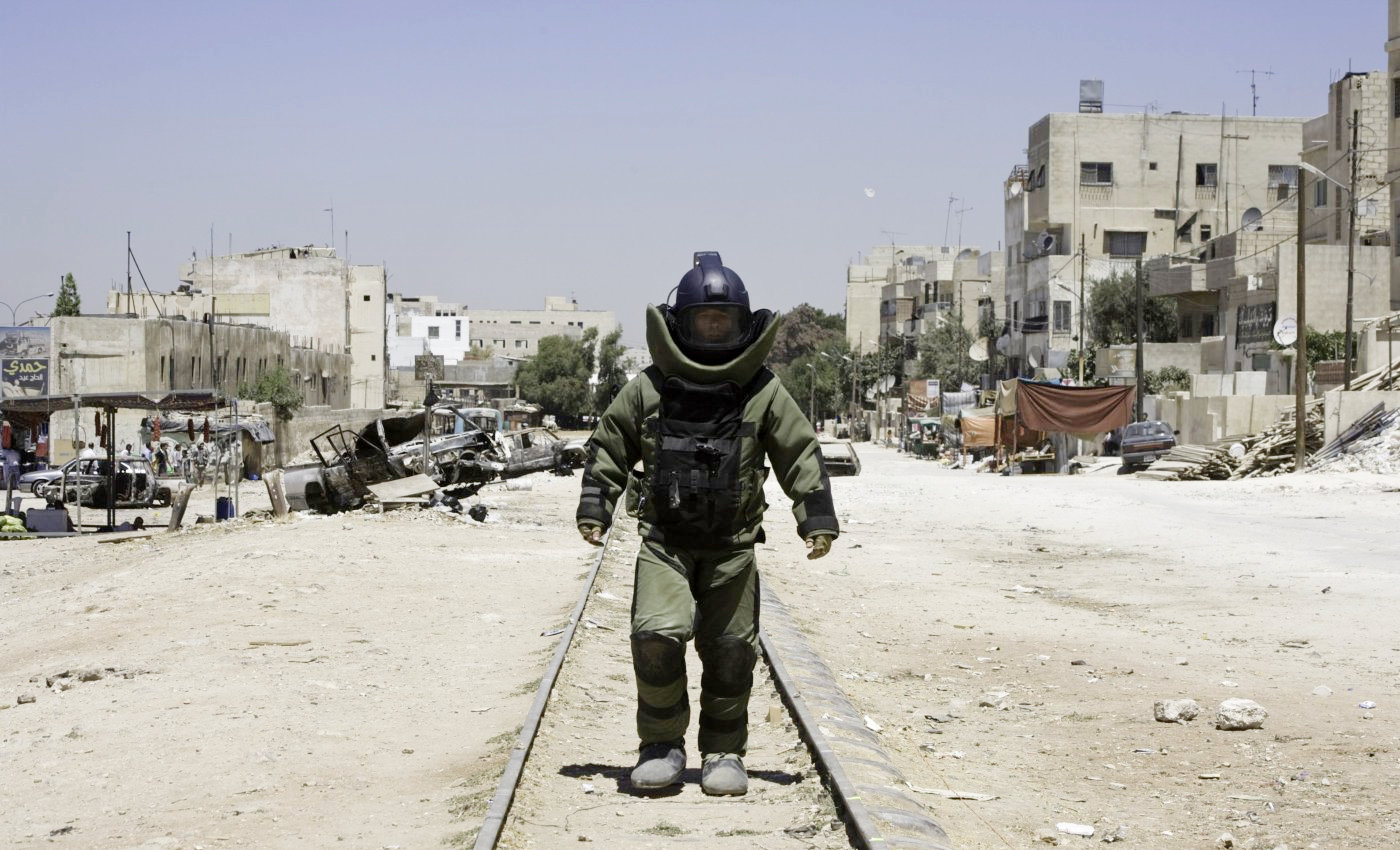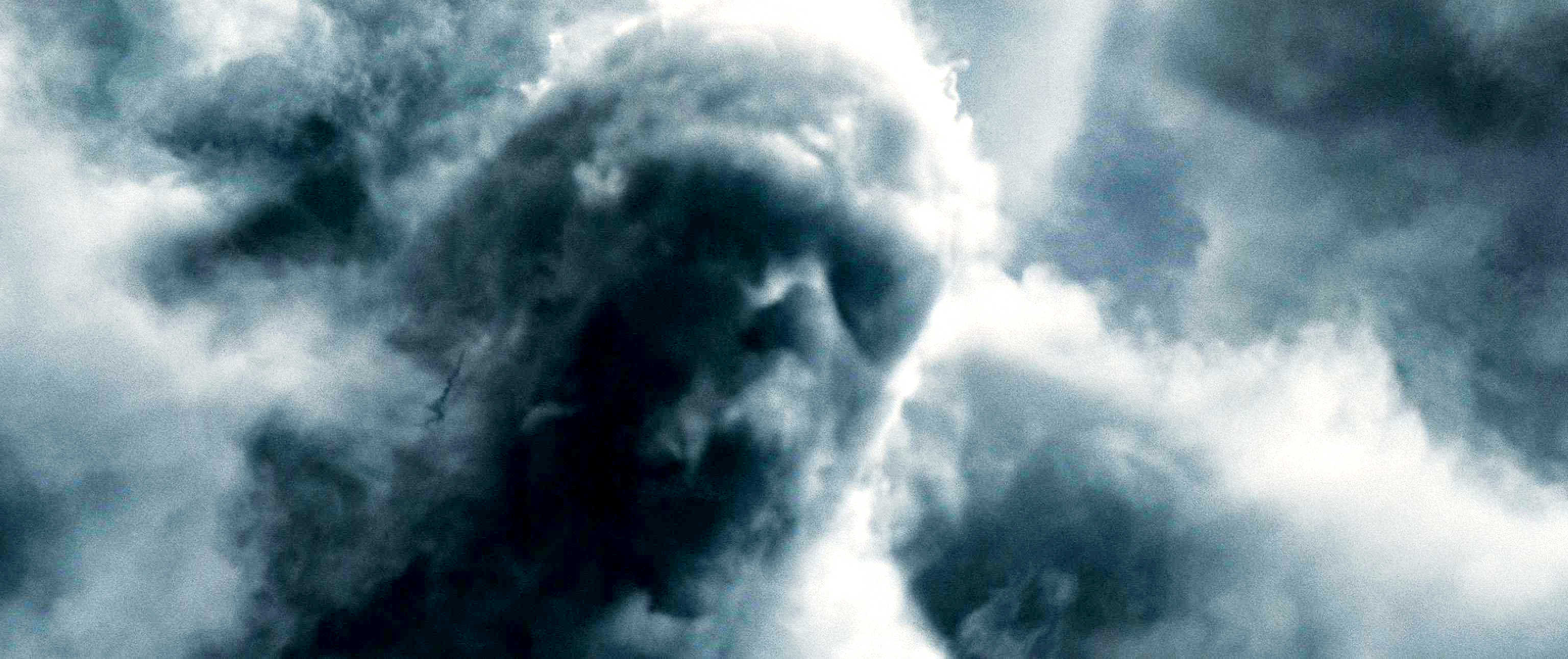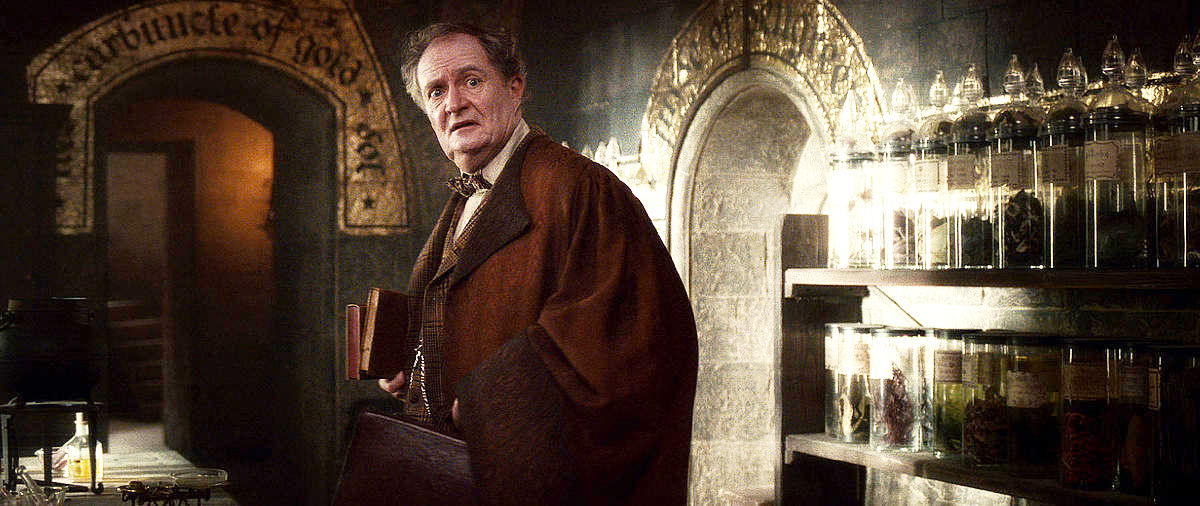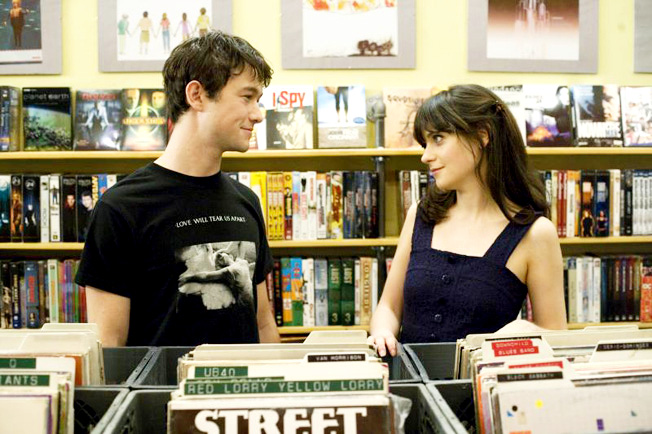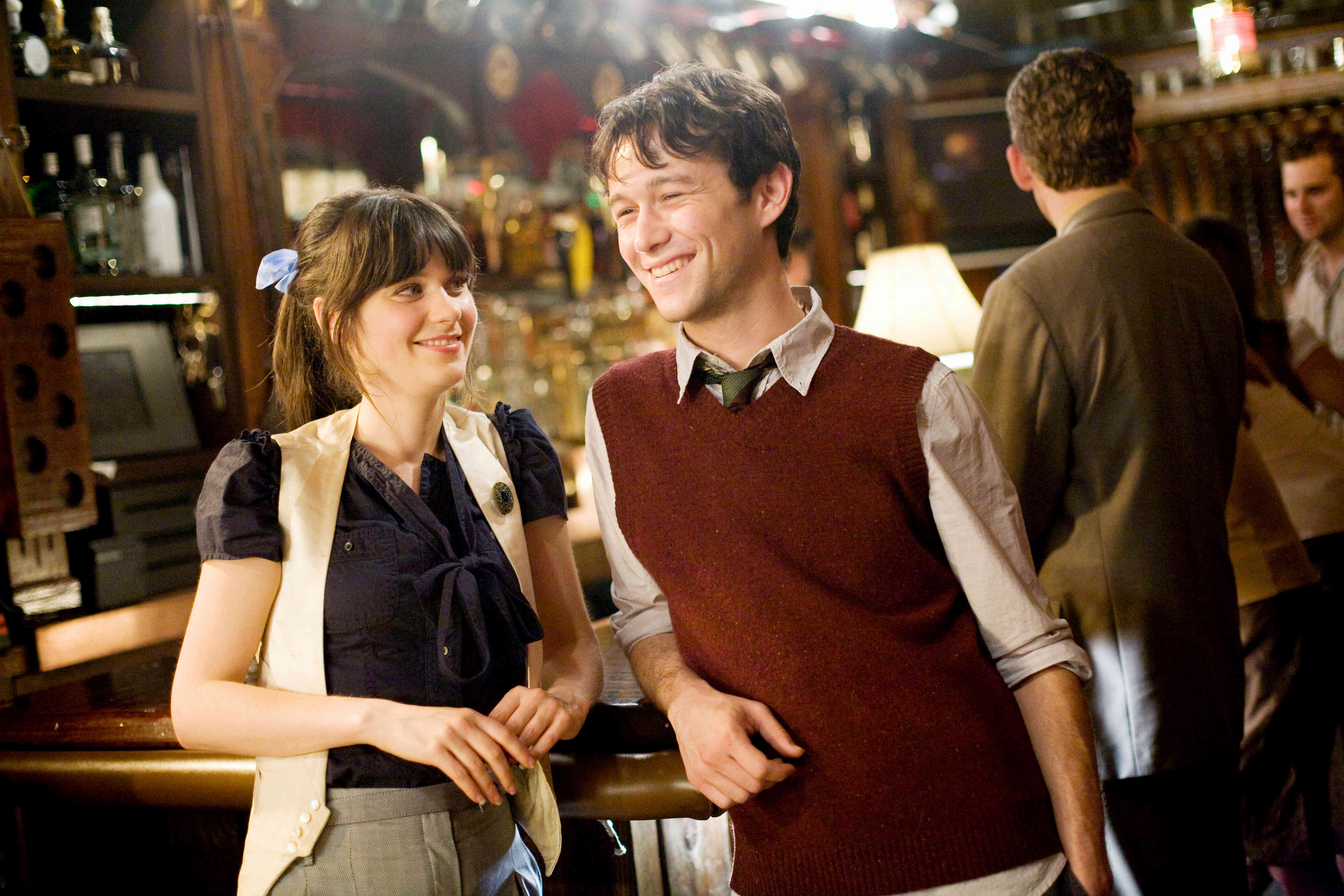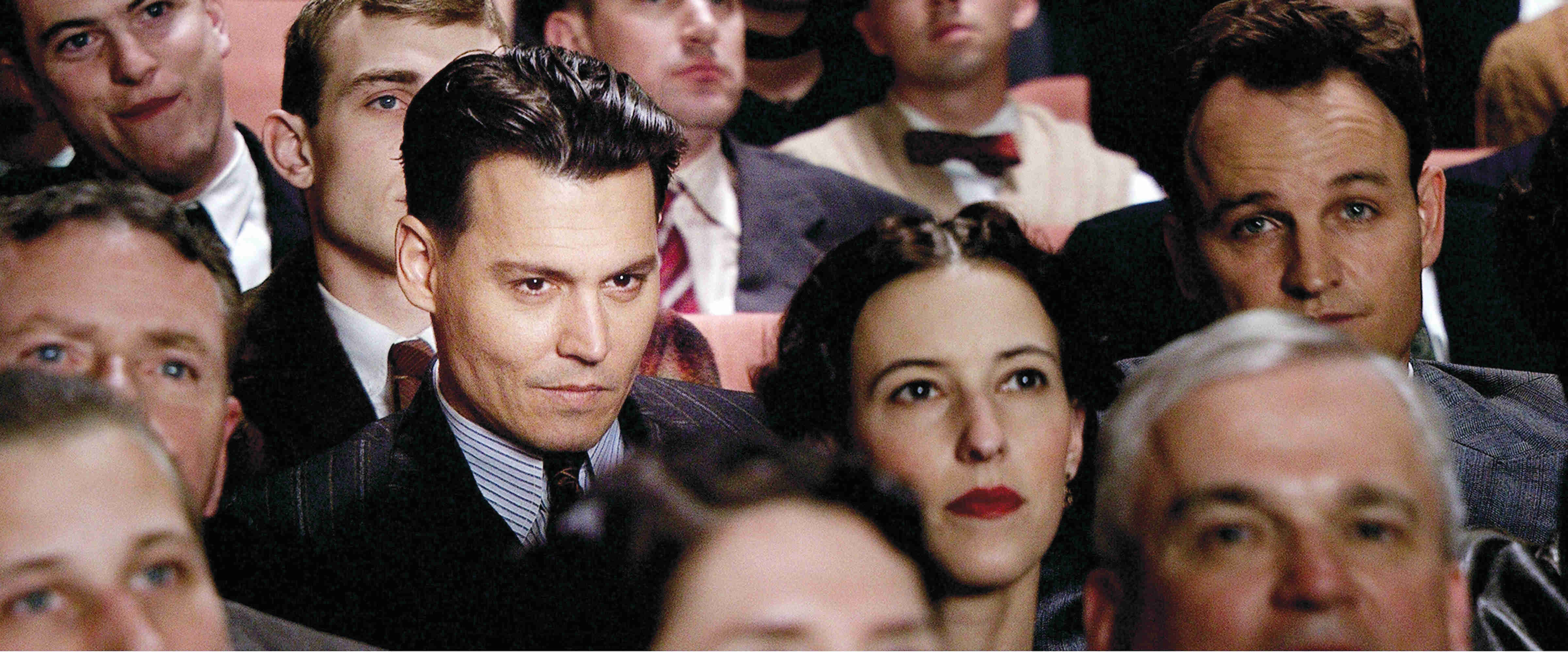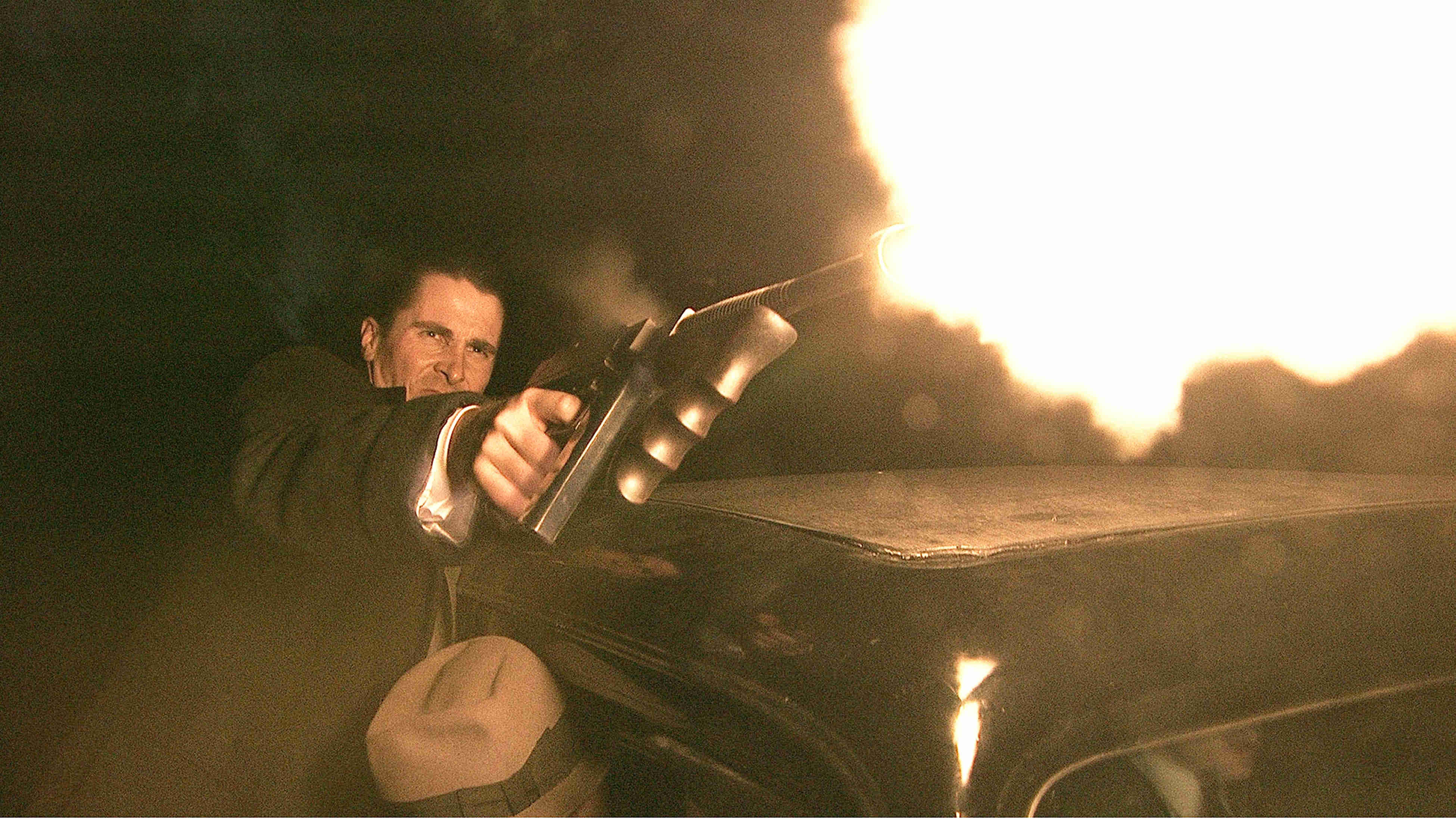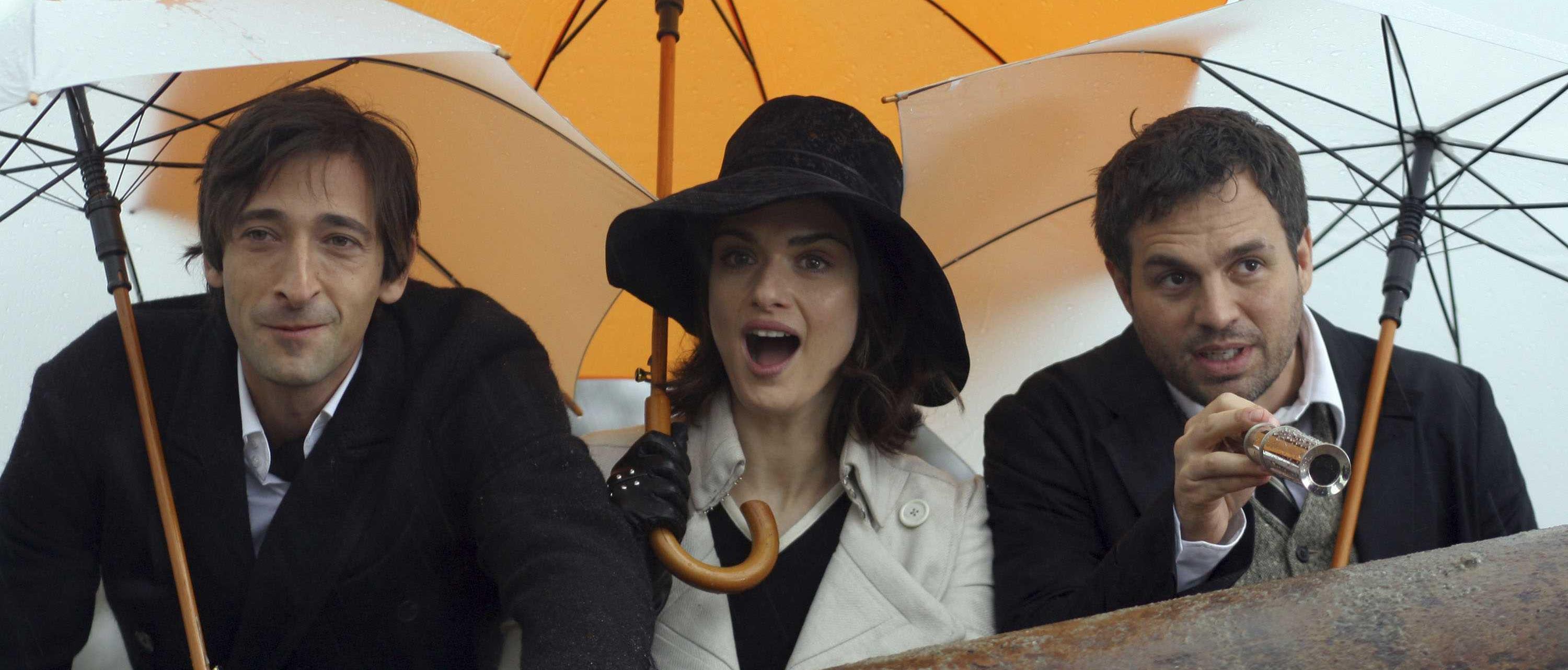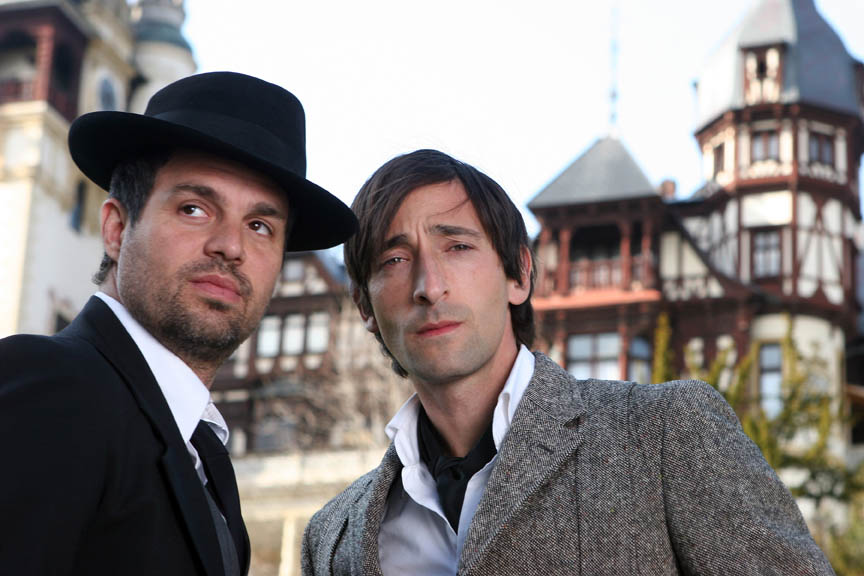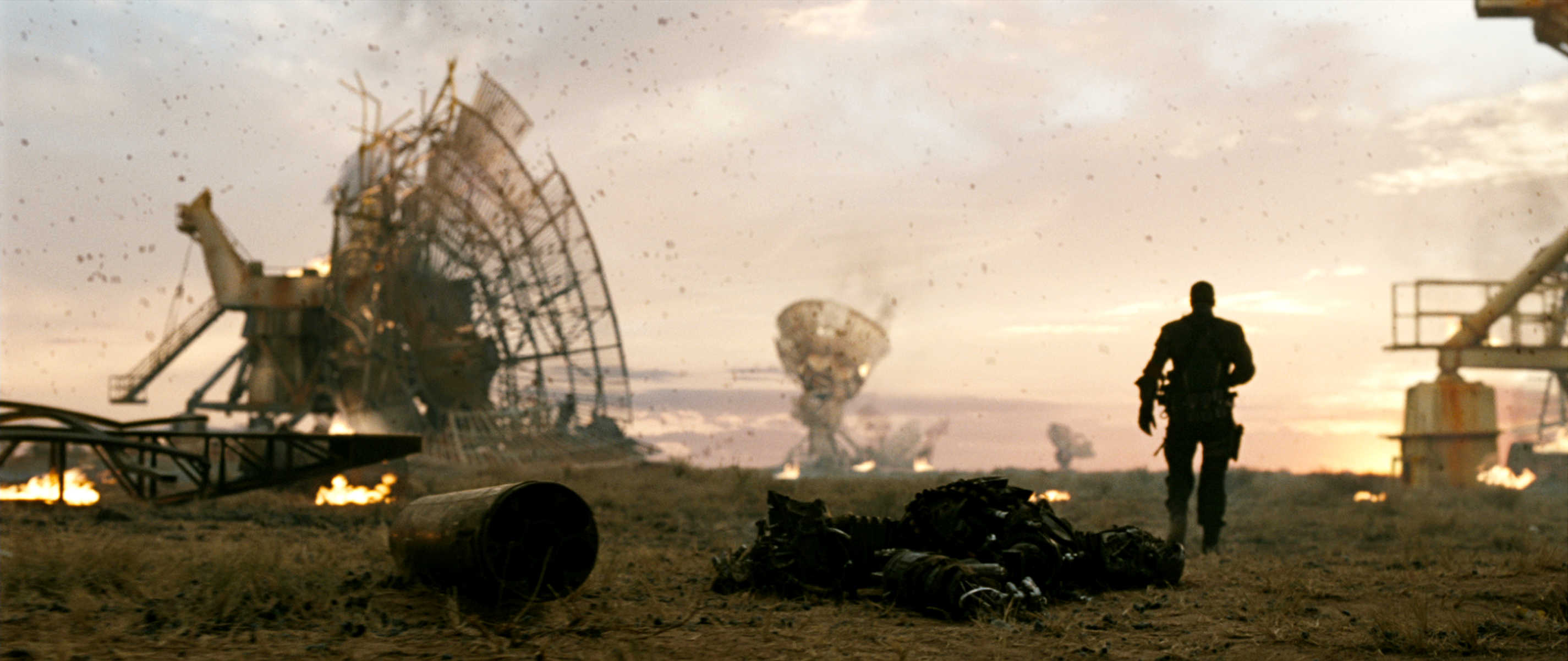Since I’m behind on my movie reviews, as ever, I’m hitting up the past few summer flicks I’ve witnessed in bulk. So, in brief:
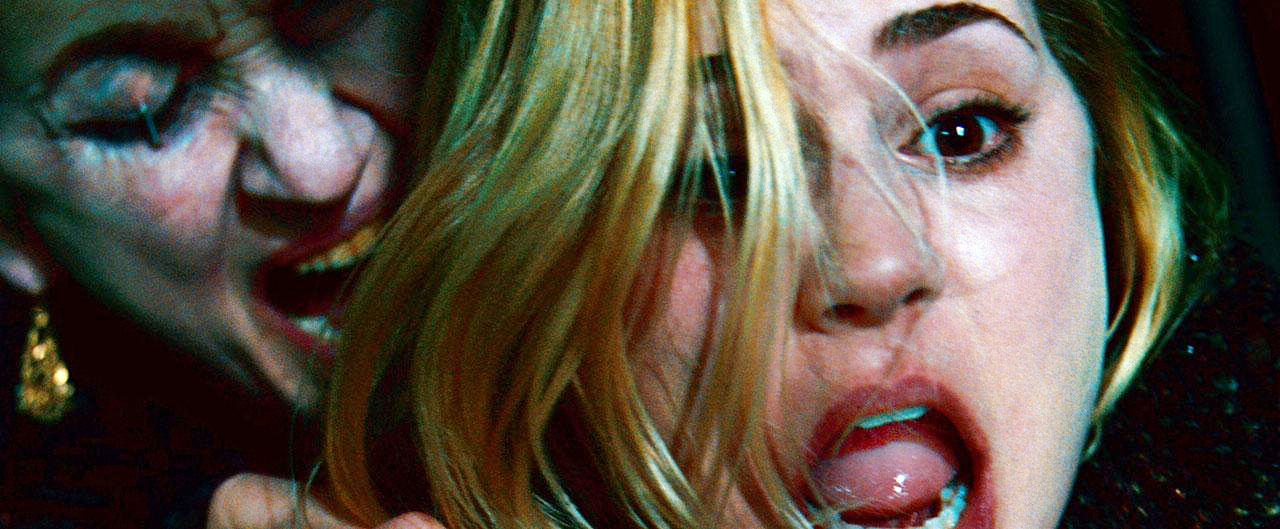
A loving throwback to the director’s
Evil Dead days, and an audience film if there ever was one,
Sam Raimi’s Drag Me to Hell delivers a solidly entertaining two hours of low-budge comic mayhem, if you’re in the mood for it. It doesn’t really aspire to be anything more than what it is — a B-movie carnival funhouse. But taken as such,
Drag Me to Hell offers thrills, chills, and (gross-out) spills with plenty of Raimi’s old-school tongue-in-cheek. I enjoyed myself quite a bit at a virtually empty screening, and would think this movie would kill with a packed Saturday night crowd. Buy the ticket, take the ride.
If you haven’t seen the previews, Christine Brown (Alison Lohman, quite appealing) is an ex-farm-girl trying to shake off her country roots and jump ahead a few social strata in the City of Angels, and she’s doing everything she can to be (or at least seem) upwardly mobile — she’s listening to pronunciation tapes to lose her accent, she’s foregoing sweets to keep her (newly thin) figure, she’s eyeing a promotion to assistant manager at the bank she works at, she has wildly overpaid for a trendy Mac laptop, etc. Then again, the last decision was probably forced on her, as Christine is currently dating Mac Guy (Justin Long), here Clay, a new psychology professor whose wealthy, elitist parents radiate condescension towards poor Christine. (By the way, fellow gradual students: if the kid being dragged to Hell before the opening credits didn’t tip you off that this is fantasy, the sight of Long starting a new academic job, complete with spiffy office, should do the trick. Riiiiight.)
At any rate, in her halfhearted attempts to seem ruthless enough for her bank promotion, Christine one day refuses the pleas of a sickly (re: gross) old woman (Lorna Raver) and signs off on the foreclosure of her home. Huge mistake, as this grotesque crone is actually of the gypsy persuasion — Yes, this movie is gonna make massive bank in Kazakhstan. Soon enough, after a comic brawl that involves stapled eyes and a lot of gummings, said gypsy dooms Christine to Hell. Hades. The Bad Place. And so, poor Ms. Brown only has three days — days which she will spend tormented by the lamia, a shadowy goat demon from the nefarious netherrealms — to save her soul. And, if you factor in LA ‘s infernal traffic, that’s really only two days…
One of the running jokes in Drag Me to Hell is that pretty much everybody around Christine — her boss (David Paymer), her co-worker (Reggie Lee), her gypsy nemesis, Clay’s parents, even Clay, whose warmth and sincere fondness for Christine is infused with noblesse oblige — is probably more deserving of her dire straits than she. Raimi’s film is positively Victorian in its punishing of Christine for trying to transgress class boundaries — apparently, there is no sin worse in LA than social striving. Still, pondering Drag Me to Hell‘s socioeconomic implications for any length of time is missing the point. Best to just sit back and let the blood, maggots, and embalming fluid flow. And if the elderly woman a few seats over won’t stop hacking, coughing, or chattering during the film — trust me, you’ll want to just let her do her thing.
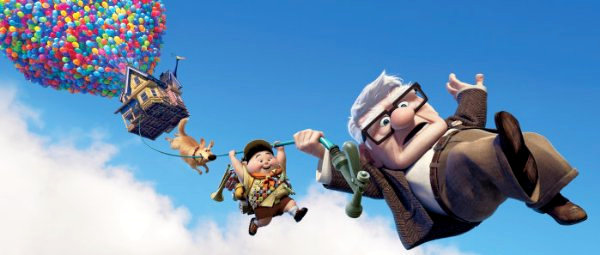
Soon after bounding out of
Drag Me to Hell, I caught
Pixar’s Up in 3D. And, yes, like every other Pixar movie you can name (with the possible exception of
Cars), it’s an impressive, eye-popping, first-rate entertainment, with both colorful craziness for the kids and a haunting resonance for adults. My go-to-Pixar films remain
Toy Story 2 and
The Incredibles, but I’m sure this’ll make a few people’s favorites list as well, even if most of the film actually comes off as somewhat anti-climactic.
Up begins with a meet-cute between nerdy Carl (eventually, Ed Asner) and adventurous Elie (Elizabeth Docter), two youngsters who share an inordinate fondness for explorer Charles Muntz (Christopher Plummer) and his Spirit of Adventure, the zeppelin he piloted to faraway Paradise Falls, never to return. These two kids enter a pact that they will one day follow in the footsteps of their hero…but, after love, puberty, marriage, and a life well-lived, they never quite make it. By ten minutes in, Elie has passed on, Carl is now an old and curmudgeonly retiree, and their longtime house is about to be torn down by ne’er-do-well corporate developers. Knowing no gypsies, Carl takes drastic action of a different kind — he attaches several hundred helium balloons to the premises and simply floats away. And, with an inadvertent stowaway in tow — That would be Russell (Jordan Nagai), the would-be Wilderness Scout who just wants to “assist the elderly” and procure his final badge — Carl finally has that long-awaited Paradise Falls adventure, which includes but is not limited to an ill-fated reunion with Muntz, a giant bird named Kevin, and a gaggle of roaming, Bowlingual-enhanced dogs…Squirrel!
Much hilarity and occasional melancholy ensues, of course, as per the norm. But for all the film’s many strengths, I thought Up suffered from a grievous structural flaw that knocks it out of the top tier of Pixar offerings. Remember how the first forty minutes of WALL-E just overpowered the broader and more whimsical “starship fatties” half of the movie? Well, Up feels even more frontloaded. The first ten minutes or so of the film, encompassing Carl and Elie’s many decades together, is so concise and elegantly told that it just put me out of the mood for the colorful birds and talking dog hijinx that follows. Ever see the ST:TNG episode where, due to that particular week’s encounter with a cosmic energy force, Picard ends up living out an entire lifetime — marriage, kids, grandkids, and all — while only forty-five minutes passes on the Enterprise? How was he supposed to go back to the usual random shuttling back-and-forth across the Alpha Quadrant after an experience like that? Well, Up felt for me much the same. It basically peaks in the first ten minutes, as it tells the story of a lifetime, and everything thereafter — tho’ kids will probably feel different — is just a slow leaking of air.
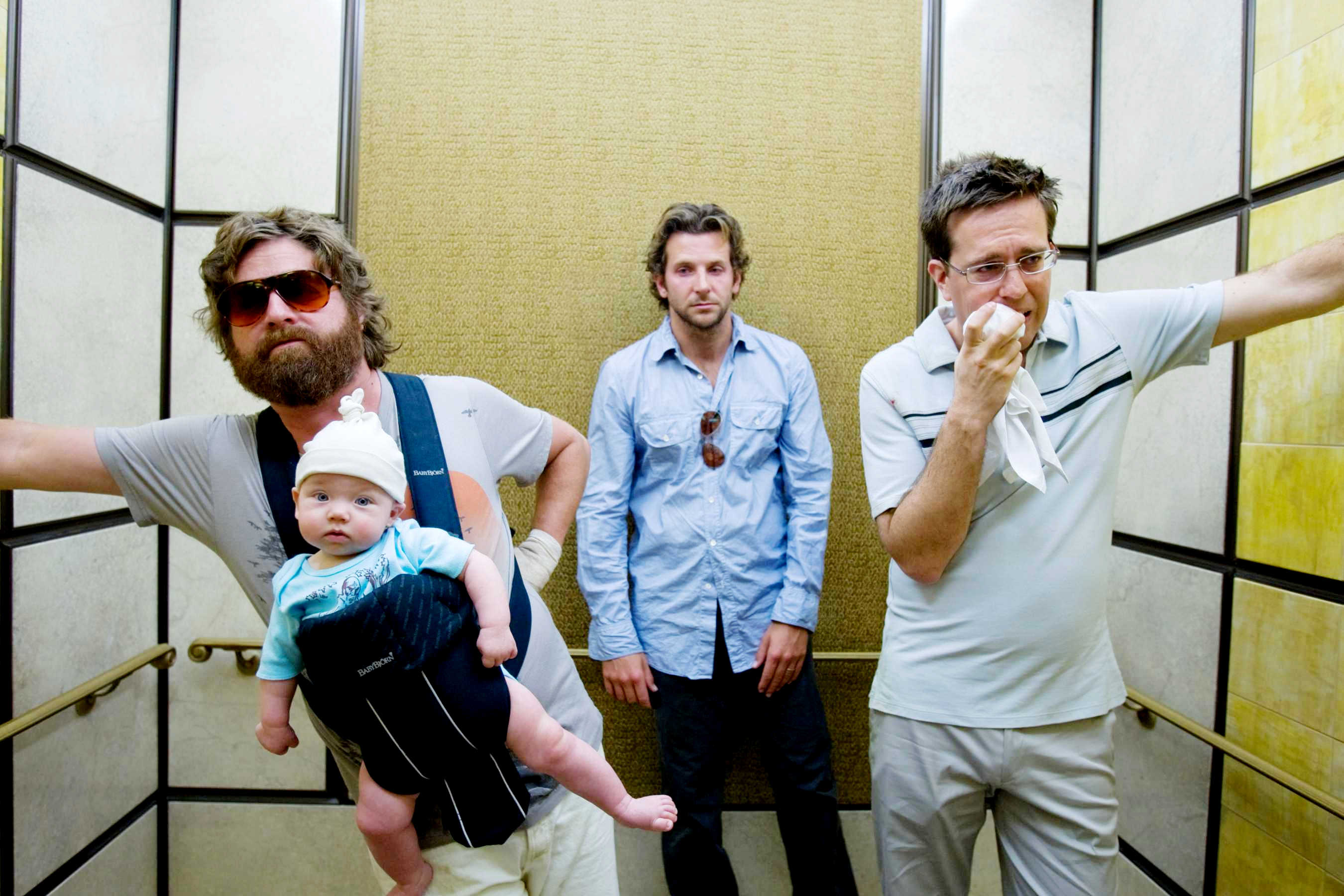
I’ve noticed in my conversations with movie people that there seems to be a distinct generation of men — say, five to ten years younger than me — who think of Todd Phillips’
Old School as a certifiable comedy classic, the
Stripes or
Revenge of the Nerds of its era. (FWIW, I thought
Old School was terrible, and remember very little about it except Will Ferrell honing his naked-guy schtick.) Well, I’m guessing a lot of those folks thought more of
Todd Phillips’ The Hangover than I did. It’s not a bad movie or anything — in fact, I would call it intermittently funny. But i didn’t find it anywhere near as uproarious as
some reviews would suggest, and I feel I could’ve just as easily caught this flick on cable in a few months and not lost anything. If this is really the comedy event of the summer, then just keep drinking — we’re in for another year to forget.
The premise of The Hangover may be the funniest thing about it. Four friends — ok, three friends and Alan, a weird deadbeat soon-to-be brother-in-law (Zack Galifianakis) — descend upon Vegas to paint the town red for a blowout bachelor party. Cut to the next day, and things have clearly gotten out of hand. Doug the groom (Justin Bartha) is nowhere to be found. Phil the lothario schoolteacher (Bradley Cooper) has a monster headache and a hospital band around his wrist. Stu the henpecked, cuckolded dentist (Ed Helms) has lost a tooth and gained a wife. And Alan can’t find his pants or his man-satchel…but has found a tiger in the bathroom and a toddler in the closet. So what the eff happened? The remaining three musketeers try to piece together clues of their Big Night and find their lost friend before zero hour in California, when Bridezilla awakens. Can they save the day in time?
The Hangover works best if you think that absolutely anything could’ve happened the night before. As it turns out, tho, most of what happened is constrained by what you’ve seen in the previews (or, barring that, the promotional materials all over the theater I was in — Heather Graham, check. Mike Tyson, check. Mike Epps, check.) And so what you’re mostly left with is a few hours of waiting for these haggard guys to tick off the next few boxes and get up to speed with the trailer. In the meantime, their company is, well, mildly entertaining, I guess, although (as in Old School) these dudes — and the sense of humor — are all a bit too mook for my taste. (If you find bare asses funny on their own terms, tho’, have at it.) A lot of the jokes revolves around Zack Galifianakis’s Alan, who’s…not quite right in the head. But, frankly, he just seems like a collection of comedy writing tics than a full-fledged character like, say, Walter Sobchak in Lebowski. What can I say? Humor is a delicate thing, and it differs for different people. But, aside from a line here or there (like the “Holocaust ring” one in the trailer), I just didn’t find The Hangover all that funny. Your mileage may vary.
Besides, on my first wild weekend in Vegas, Dubya started an unnecessary, multibillion-dollar war. Beat that for crazy.



